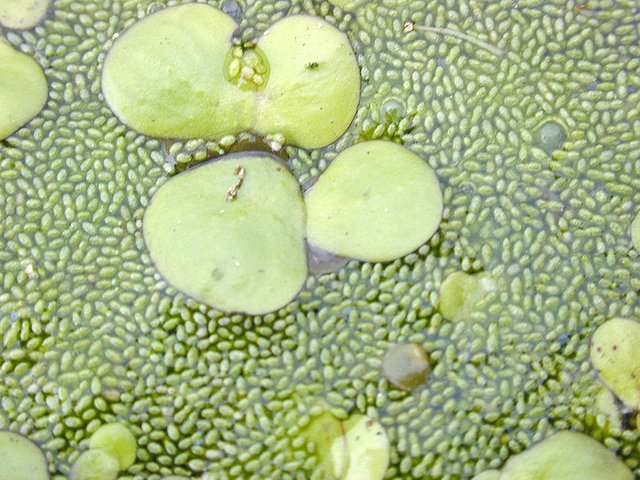Move Over Ethanol, I'm Excited About Duckweed
Last night, I attended a lecture at the Cold Spring Harbor Laboratories entitled, "Designing Bioenergy Crops: Developmental Problems and Genetic Solutions." The speaker, Robert Martienssen, Ph.D., who is a world-famous expert on plant genetics, revealed his exciting new research, in partnership with Brookhaven Laboratories and Berkeley University, on lemna (duckweed), which he thinks is the most promising bioenergy crop to replace fossil fuels.
Unlike ethanol, which requires more energy to produce than it actually generates, duckweed consumes hardly any resources and actually cleans the water and air around it. Duckweed can grow in the dirtiest water without fertilizer or chemicals (it's actually grown as a commercial fertilizer in many countries, including Bangladesh), and sequesters carbon dioxide to use for photosynthesis. It multiplies at a remarkable rate, too; fronds bud once every two to three days, which means that duckweed could fill the entire earth in only 30 days. That's well on the way to supplying the billions of tons of biofuels we would need annually to replace gasoline.
Of course, there's a problem with that rapid growth rate, too, since nothing is perfect. Speak to any gardener, and he or she will no doubt tell you of the struggle to rid his or her yard of duckweed, which is considered an invasive species. Duckweed won't steal resources from the life around it, but it will block sunlight exposure to underwater plants once it covers the surface of a body of water, halting photosynthesis. That doesn't mean duckweed is totally evil, just that we must introduce it with care, making sure to only use native species, and to breed them in existing waste water, where they can do more good than harm.
Martienssen and his colleagues are searching for a way to increase the oil output of duckweed so that it can be harnessed for commercial purposes. Right now, the plant is mostly comprised of starches that can be turned into cellulosic ethanol, but that process is much less efficient than simply harvesting oil right from the plant. But by breeding duckweed to contain a symbiotic algae, which more readily produces oil, Martienssen hopes to generate an optimal bioenergy fuel source.
These developments are exciting if you understand them in the correct context. How many times have I read an article or seen a news broadcast on: "[Insert Plant Here]: The Next Biofuel" only to learn later that the problems with the so-called miracle crop outweigh its potential benefits? However, if you consider that there probably won't be any one replacement for gasoline, but rather many, and that we desperately need to reduce our fuel consumption anyway, this is pretty exciting research.

Thanks for using eSteem!
Your post has been voted as a part of eSteem encouragement program. Keep up the good work! Install Android, iOS Mobile app or Windows, Mac, Linux Surfer app, if you haven't already!
Learn more: https://esteem.app
Join our discord: https://discord.gg/8eHupPq